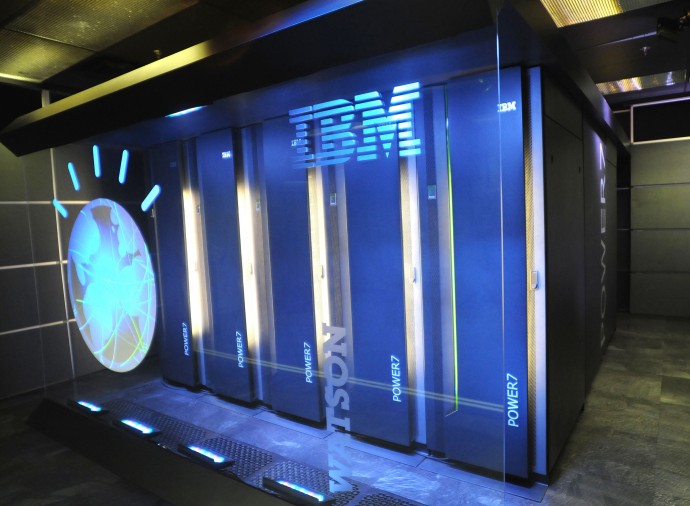Work for Watson

The Watson supercomputer has already proved to the world its viability and seriousness by beating two absolute champions of the game Jeopardy! - the type of "His game." An impressive debut, held in 2010 , could not be overlooked - at the same time, many critics drew the attention of the public to the fact that the practical application of such intelligence will not find the next few years.
Contrary to skeptics, early next year, Watson will begin to bring practical benefits to all people - WellCare, a company providing various services in the US healthcare sector, has signed a contract with IBM to use the power of a supercomputer to process various medical data for patients with cancer, chronic diseases and other severe forms diseases.

')
The main task of Watson will be to help medical staff to more effectively cope with difficult cases in patients, and therefore will initially process the data of cancer patients. Information processed by the DeepQA system will be available to doctors on computers and tablets, in a hospital or over the network.
In addition, WellCare plans to create an application that allows the patient to directly receive various information about his or her own state of health, doctor's recommendations and other data that may be necessary in a difficult situation.
The undoubted advantage of Watson in this, frankly, non-standard area for supercomputer computing is the ability to understand and analyze close to colloquial English, as well as the ability to give a logical answer. It is possible that in the future he will listen to what the patient says to the doctor and offer his own vision of the problem and help with the diagnosis in a difficult situation.
In a sense, data processing in the Watson system is performed by the emulator of the human brain, which, although it permits an erroneous answer, ranks the conclusions according to a certain “confidence” algorithm, because it is not easy work to be responsible for people's lives.

Source: https://habr.com/ru/post/128274/
All Articles